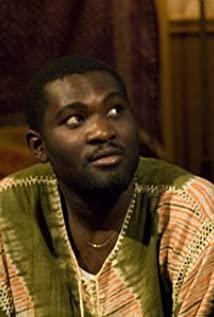Movies that explore the essence are always difficult to make, especially love.
This film does not focus on all the trivialities of getting along in love, and both sweetness and boredom have been touched in one stroke. The true beginning of the story is the choices and actions of all the characters as the sweetness of a relationship dissipates and betrayal and forgiveness follow. With the collision of characters, love is like a broken mirror, but it reflects us little by little.
The characters set in the script are relatively clever - Owen and Qiu are the symbols of two "ideal lovers", one is rude and direct, full of strength, the other is gentle and romantic, sensitive and considerate. But possessiveness and selfishness are the same. The same is true for the two female characters, one seems independent but yearns to be dependent, while the other is entangled and clingy but determined inwardly. And women's unique flexibility and a certain kind of fraternity are also common, but no one is absolutely ideal. They can be violent, conceited, or cowardly.
In fact, after the honeymoon period, we can feel it faintly - your significant other is so distinct and imperfect. Our perception of this imperfection is heightened by modernity, and emotions have become fleeting, but the question also arises - what do we do with the past when we are all tirelessly and confidently pursuing new and exciting love and temptation Gentleness, how to deal with being hurt, choose to save or let go? This is the most thrilling part of the film.
After Owen learned the truth about his wife's derailment, despite the pain and crying, he violently pressed Roberts where he was in bed in a flash, even detailing his position and orgasm;
Qiu confessed that he was in love with someone else, but when the other party let go, he blocked the door in a panic to prevent them from leaving;
Roberts made up his mind to break up, and he chose to break up with love. Portman chose to forgive Qiu who cheated, but when Qiu asked her to be honest, he realized that love was dead and decided to break up.
Do these passages feel familiar? I think that's because we've all been through this kind of breaking point.
It is difficult to explain abstract concepts with movies, and more often we can only approach the essence by describing phenomena. The director did not overly indulge in self-expression, but the old man intercepted these hidden but deep-rooted fragments of love, accurately completed the narrative, and completed the complex and ambiguous presentation of emotional relationships in addition to the ups and downs of the plot.
In love, it doesn't matter what is real, what we fall in love with is a beautiful projection, and breaking is the moment when we need to face reality. We confront and quarrel with the other half, like a storm, disguising "self" and hallucinations are washed away, revealing their own imperfections. Next, whether to continue confessing, begging, or leaving, it just shows ugly possessiveness, weakness, or selfishness. At that moment, no matter what you do, it is impossible to make things complete, and what is not incomplete is the imagination of yourself/others in the past.
The love that makes us excited and painful when we are young seems to be the same. We have to wait until we miss everything before we understand what it is and who he is. Afterwards, it was more about worrying about gains and losses, learning more inclusive and accepting relationships, and then the days went down. Until one late night, these memories came unexpectedly.
The director finally expressed his ideas through the mouth of the characters. Owen told his rival that love was a compromise, but in the context of the film, it was obviously not meant to be inspirational. The most thrilling episodes in the film show the bruises and bruises at the end of love. After that, we have domesticated the wildness and impermanence of our self, and understood the skills, meaning and ability of love, but we still do not understand the moment when our heart begins to fall in love. We made a compromise, but the throbbing of the past is a thing of the past.
Nichols directed The Graduate (1967) in his early years, and interestingly, Minghella, the director of The English Patient (1996), made a similar multi-protagonist emotional film Deconstructed Life two years later. . The two were in their prime when they filmed their stunning predecessor, and their emotions were much stronger. But after middle age, it is much calmer, pure love and passion no longer appear, only looming behind the narrative, becoming what the protagonist can't ask for. Probably the sequelae of intense love is that we will be able to face mediocrity peacefully, and the passion that will never return.
The first time I watched this movie was about 15 years ago, recommended by the goddess in college. After watching it, I was very excited, but fortunately I don’t remember it at all, except for the heart-piercing song of daimien rice, which looped for a long time. I vaguely remember that I seem to eagerly apply the miss in the play, and persuade her not to miss it. After so many years, I found all those love, stupid and sincere, and the behavior is not different from the film. Probably this is the talent of those good directors - quietly, they have quietly condensed their lives.
View more about Closer reviews











